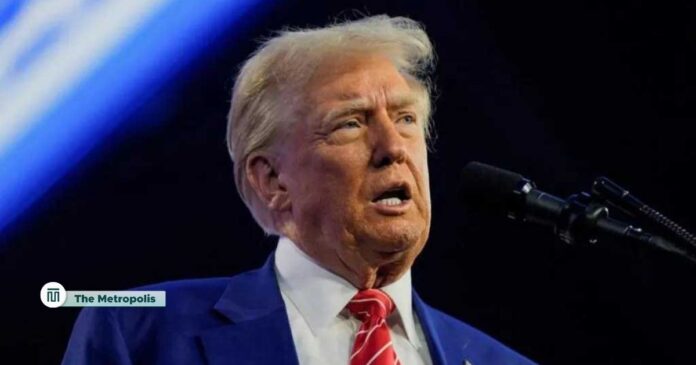President-elect Donald Trump is set to be sentenced on January 10 in the criminal case related to hush money payments made to adult film actress Stormy Daniels. However, a judge has indicated that Trump is unlikely to face jail time or any significant penalties. This ruling means that Trump will be required to appear for sentencing just 10 days before his inauguration, marking a historic moment, as no U.S. president—either former or sitting—has ever been convicted of a crime before.
Justice Juan Merchan’s ruling states that Trump, 78, may appear in court either in person or virtually. The judge suggested that an “unconditional discharge,” meaning no jail, fine, or probation, would be the most likely outcome. Merchan acknowledged Trump’s intention to appeal the conviction, and the imposition of the sentence would allow Trump to proceed with his appeal.
Trump spokesperson Steven Cheung stated that there should be no sentencing in the case, calling the legal proceedings lawless and asserting that the case should be dismissed immediately as it violates the Constitution.
Merchan’s decision also involved rejecting Trump’s argument to dismiss the case based on his election victory. Trump’s defense attorneys had contended that the criminal case would hinder his ability to govern as president, but Merchan ruled that dismissing the case would undermine the rule of law and stated that Trump’s status as President-elect did not justify such an extreme measure.
The judge also criticized Trump’s public attacks on the justice system, noting that his statements showed a lack of respect for the judiciary. Trump had been found guilty of 10 counts of contempt for violating court orders during the trial. Merchan wrote that Trump’s history of undermining the justice system did not weigh in his favor.
This case stems from a $130,000 payment made by Trump’s former lawyer, Michael Cohen, to Stormy Daniels to silence her before the 2016 election regarding an alleged affair with Trump, which he denies. A Manhattan jury convicted Trump of 34 counts of falsifying business records to cover up the payment. Trump had pleaded not guilty, calling the case a political attack by Manhattan District Attorney Alvin Bragg, designed to harm his 2024 presidential campaign.
Trump’s sentencing was initially scheduled for July 2024 but was delayed multiple times. Merchan had already postponed it several times, most recently to November 26, and later delayed it indefinitely following Trump’s victory in the presidential election.
Merchan also dismissed Trump’s claim of presidential immunity in his bid to have the conviction thrown out, ruling that the charges were personal acts of falsifying business records and did not interfere with the executive branch’s functions.
Falsifying business records carries up to four years in prison, but given Trump’s age and clean criminal record, legal experts have suggested he is unlikely to be incarcerated. Trump is also facing multiple other criminal cases, including charges related to classified documents and attempts to overturn the 2020 election results.



